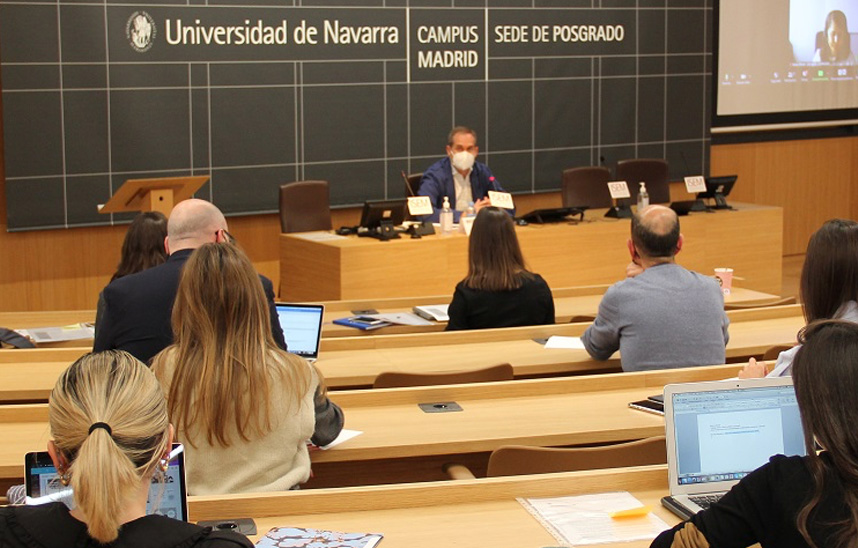"Advancing in Circular Economy is a great challenge in which we all have to get involved: Administration, Companies and Citizens".
The consulting firm Vinces and ISEM organized a conference on Circular Economy with representatives of the Spanish Government and the European Commission.

19 | 04 | 2021
ISEM Fashion Business School hosted the conference "The Challenges of the Textile Sector in the Scope of Circular Economy" which brought together personalities from the Administration, business, teaching and representatives of civil society. The aim of this conference, organized jointly with Vinces Consulting, "was to put the public and private sectors in dialogue on the issue of sustainability and thus be able to row all in the same direction," in the words of Teresa Sádaba, director of ISEM, who was in charge of welcoming the more than 50 attendees in person and virtually.
The first round table, moderated by Ricardo Riquelme, associate director of Vinces Consulting, included the testimony of María Rincón, Policy Officer- Circular Economy Action Plan of the European Commission, and Margarita Ruíz Saiz-Aja, Deputy Director General of Circular Economy of the Ministry for Ecological Transition and the Demographic Challenge. Both agreed on the growing importance of the Circular Economy within the textile industry for all its stakeholders: "Advancing in the Circular Economy is a great challenge in which we all have to get involved, from the point of view of the administration, companies and citizens," said Ruíz Saiz-Aja.
Regulations and action plans
They also explained and emphasized the strategies and plans already approved and the new regulations, both at national and European level, which are being discussed for approval in the near future. At the European Union level, Rincón spoke about the Action Plan for a Circular Economy prepared by the European Commission, which emphasizes a group of key sectors and, among them, the textile sector: "One of the key elements is to include measures to empower consumers and make it easier for them to obtain information about the products they are purchasing in terms of durability and reparability".
For her part, the Deputy Director General of Circular Economy commented on the draft bill of the Law on Waste and Contaminated Soils, which includes the obligation for all municipalities to collect textile waste separately before January 1, 2025. In this sense, he clarified that "as it implies an important local expense, we are also working on the extended producer responsibility. This responsibility involves manufacturers throughout the value chain, who must begin to mobilize and implement voluntary initiatives. I miss a greater role in this area on the part of manufacturers".
The day continued with another round table in which a fashion company manager, a supplier, a professor and a representative of civil society discussed the challenges of the textile sector and sustainability.
